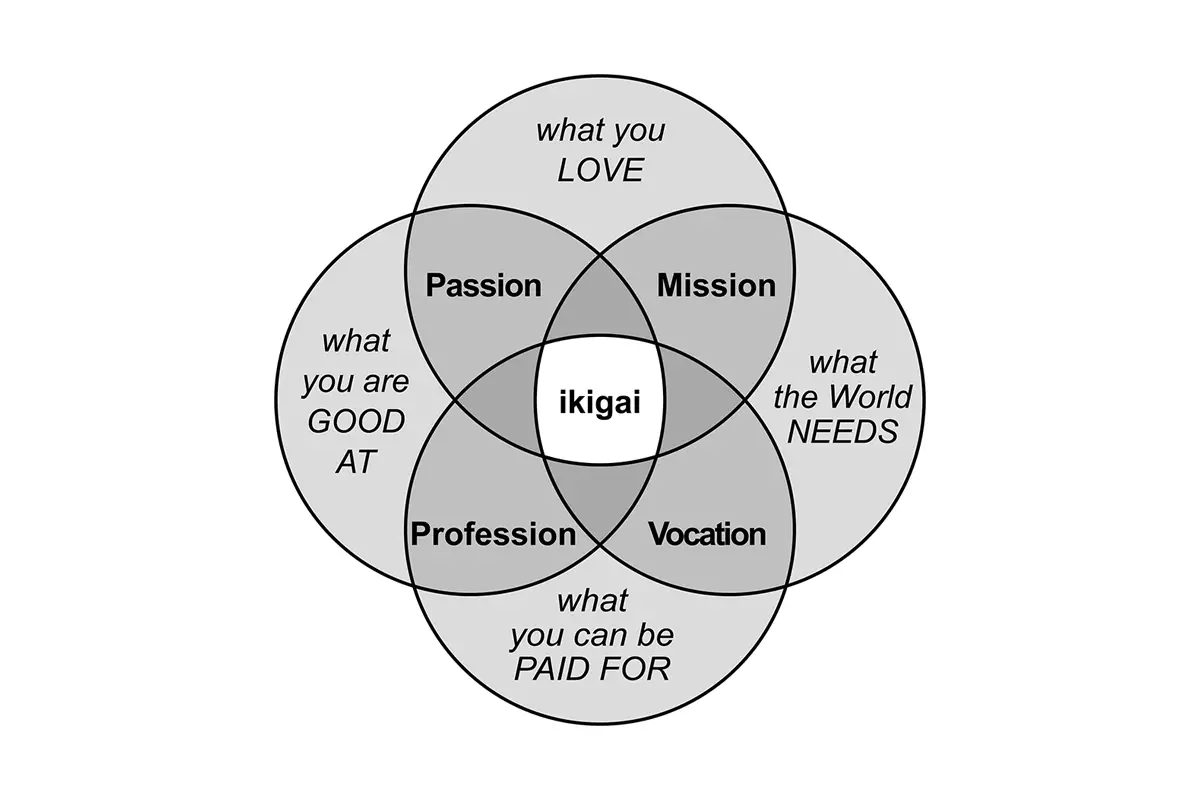Finding purpose and meaning in life is a universal quest. For centuries, Japanese culture has emphasized ikigai as a central pillar of success and fulfillment. Loosely translated as “reason for being,” ikigai offers a comprehensive framework for discovering your passions, leveraging your talents, meeting the world’s needs, and defining a career aligned with personal growth.
As traditional wisdom is passed down through generations, the principles of ikigai continue to resonate in a modern context. Understanding and integrating this Japanese secret into everyday routines promises to unlock deeper motivation, joy, longevity, and satisfaction.

The Roots of Ikigai
Ikigai emerges from classical Japanese philosophy that views well-being as the outcome of balance and harmony across body, mind, and spirit. Rather than prioritizing individual wants, ikigai considers how personal growth intersects with the collective need for positive change. It offers an antidote to cultures overfocused on status, wealth, and ambition as the primary motivators.
For instance, the people of Okinawa, Japan–considered global longevity pioneers–seamlessly integrate ikigai into their lifestyles. Daily practices combine purpose with community, movement, nutrition, and connectedness. This holistic approach enables remarkable vitality into old age by mitigating the stresses of modern life.
Understanding Ikigai
At its core, ikigai is where your talents and skills meet global needs, resulting in personal fulfillment, contribution, and lasting joy. Ikigai considers four key elements that must work together in harmony:
What you love (passion)
This entails reflecting on those activities that absorb, engage, and give a sense of flow. Passion-fueled pursuits spark energy and drive from within rather than require external discipline.
What the world needs (mission)
Once passions are defined, examining how to apply them for social good provides a sense of contribution. Ikigai asks you to look beyond personal gratification by aligning your strengths with the needs of something larger than yourself.
What you can be paid for (profession)
The practicalities of earning a living must also integrate with your capabilities and mission. Sometimes, you may compromise, but ultimately, your profession should not divert too far from expressing your gifts in service to purpose.
What you are good at (vocation)
Every individual has natural talents and gifts. Identifying and nurturing these innate strengths provides the foundation for pursuing vocations aligned with passion and mission. Confidence emerges when you devote yourself to that which comes naturally.
True ikigai emerges at the nexus of these four elements when all work together in concert. Finding harmony between them is a central component of success and achievement.
Ikigai in Everyday Life
Weaving ikigai into daily routines and significant decisions promotes alignment across the facets of life. Beyond conceptual understanding, ikigai offers a reflective practice enabling choices that bridge meaning and livelihood.
For instance, someone skilled with their hands who loves working with wood may discover ikigai in a carpentry career focused on building schools or habitats for those in need. The craft becomes meaningful by intersecting with personal joy and talent to serve a broader purpose.
Or an extroverted musician who desires connection may find ikigai by performing at hospitals and nursing facilities. By expressing themselves through song to comfort and inspire those needing healing, all four ikigai dimensions coalesce to generate fulfillment.
The Impact of Ikigai on Personal Success
Studies demonstrate that pursuing ikigai reaps measurable benefits across a healthy being’s mental, physical, emotional, and spiritual facets. People guided by ikigai often experience:
- Greater life satisfaction: Aligning lifestyle around passion and purpose correlated to increased happiness scores and self-reported feelings of a well-lived life.
- Reduced stress and anxiety: Harnessing natural gifts in service of what matters created both eustress (positive stress) and resilience in facing life’s inevitable challenges.
- Enhanced motivation and perseverance: Internal clarity of purpose fueled drive by tapping into intrinsic rewards that transcend financial incentives and social recognition.
- Improved focus and presence: With less distraction pulling attention in multiple directions, ikigai enabled single-minded immersion into those tasks that mattered most.
Beyond personal gains, ikigai also ripples outward to uplift families, communities, organizations, and society through positive contributions.
Finding Your Ikigai
Discovering your unique ikigai requires patience, self-observation, and reflection upon those moments when life feels most meaningful. Consider when you lose track of time or feel called to action from within. What recurring patterns emerge across your journey, revealing your true nature?
To unlock additional insights, also examine:
- Childhood dreams and ambitions
- What energizes versus what drains you
- Praise from others regarding your natural abilities
- Skills developed when no one was watching
- Topics you are curious to explore more deeply
As these clues coalesce, align lifestyle structures around passion and talent deployed to meet the world’s needs. Accept that finding your ikigai requires course corrections rather than a singular moment of arrival. Using the four ikigai elements as an ongoing compass guarantees you’ll continue moving towards a deeper purpose.
Case Study: Ikigai in Action
As a little girl, Sarah always loved drawing, reading, and making up adventurous stories. Though she became an accountant to earn a stable income, she felt unfulfilled, crunching numbers all day.
Recalling childhood passions, she began journaling, painting, and crafting stories during evenings as a creative outlet. After positive feedback from friends, she turned this outlet into a thriving blog focused on empowering young women through art, books, and inspirational stories.
While maintaining her accounting job for finances, Sarah’s reputation as a blogger grew. She wrote an eBook and offered online courses on building confidence through creativity. Her blog enabled her to monetize doing what she loved and gave her days renewed purpose.
Leveraging this alignment between passion, talent, and serving a need, Sarah recently left her accounting role to pursue her ikigai as a full-time women’s empowerment writer and artist. Though finances are tighter, she’s never been happier or more energized by her work.
Sarah’s story reveals the transformative power of ikigai. What she once did for free nights and weekends has become her full-time reason for being through dedication to those unique intersections between loving, giving, and living.
Key Takeaways
- Ikigai offers a framework for discovering your purpose by aligning passion, mission, profession, and vocation for balance and service.
- Weaving ikigai philosophy into everyday routines reaps measurable wellness benefits while uplifting your community.
- Finding your ikigai requires self-observation, pattern recognition, and intentional lifestyle alignment across your four critical elements of loving, giving, and living.
Conclusion
Ikigai has endured across centuries and cultures as a blueprint for living meaningfully by transforming self-knowledge into contribution. Distilling life’s complexity into four guiding pillars, ikigai empowers you to curate a purposeful existence while unleashing your greatest gifts out into the world.
Beyond the self, integrating ikigai philosophy builds resilience across families, organizations, communities, and society at large. We thrive together when each individual nurtures their unique reason for being while supporting the collective whole.
Regardless of age, income, culture, or circumstance, ikigai lives within us all — waiting to be uncovered through courage, self-inquiry, and purposeful action. Our greatest calling is honoring inner wisdom and guiding us toward our intersecting passions, talents, and global needs. By doing so, we seed meaningful living.
